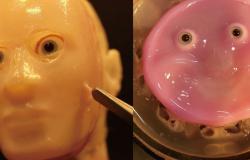According to Dr. Khalaf, if you notice many cracks on your tongue accompanied by a thick yellow coating, this could indicate that coffee is not your ally. This observation is based on traditional Chinese medicine, where these symptoms signal an imbalance called “yin deficiency“. This type of imbalance, associated with heat and humidity, means a deficiency of fluids or cold, exacerbated by the consumption of coffee, a stimulating and naturally warming drink, explains The Mirror.
Dr Lawrence Cunningham, a UK Care Guide GP, explains that yin deficiency corresponds to an exhaustion of the nourishing aspects of the body, leading to symptoms like restlessness and uncomfortable heart sensations. Coffee, being a warming stimulant, can
make these symptoms worsealthough, according to him, a yellow tongue is not always caused by coffee consumption.
“This layer can be due to various factors”
According to Dr. Cunningham, a thick yellow tongue is usually a sign of digestive system imbalance, rather than a specific aversion to coffee. “This layer can be due to various factors such as poor oral hygiene, dehydration, or the presence of bacteria and yeast,” he says. Although coffee is not often the direct cause, it can exacerbate the conditions leading to this yellow coating.
Coffee is acidic and can alter the pH balance in the mouth, encouraging the overgrowth of bacteria and yeast, and potentially leading to a yellow tongue. Besides the color of the tongue, other signs indicate that coffee can negatively affect the bodysuch as stomach pain and acid reflux, because coffee increases stomach acid production.
There are other signs to take into account
Frequent headaches or migraines may also be linked to excessive coffee consumption, especially if a person consumes large amounts throughout the day. “Caffeine can be addictive, and excessive consumption can lead to withdrawal symptoms, including headaches,” adds Dr. Cunningham.
It is therefore crucial to monitor the physical signs that your body may exhibit in response to coffee consumption.
A yellow tongue, accompanied by other symptoms like digestive discomfort or headaches, could be a signal that your coffee intake is too high.
What to do if you have symptoms?
If you are concerned about the color or texture of your tongue, it is recommended to consult a general practitioner. A healthcare professional can help you determine whether your symptoms are related to your coffee consumption or another underlying cause.
In the meantime, it may be beneficial to try to
reduce your coffee intake and see if your symptoms improve. Opting for alternatives such as tea or caffeine-free infusions can also be a temporary solution to observe possible changes in your state of health. “Try to limit your consumption to one or two cups per day and avoid drinking it on an empty stomach.” advises Dr. Cunningham.






